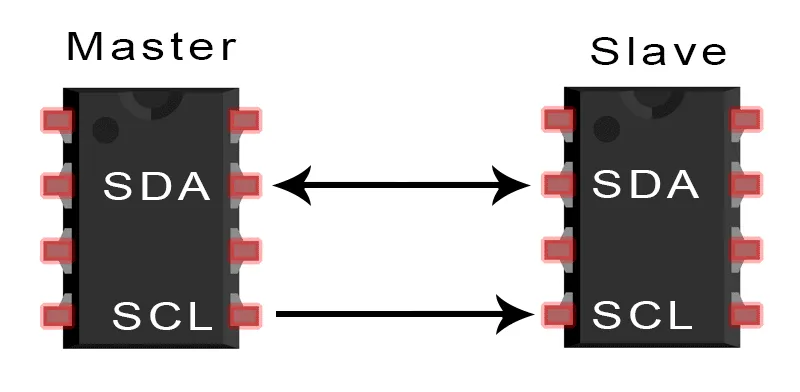Introduction to the I2C Protocol
The I2C (Inter-Integrated Circuit) protocol is one of the most used communication protocols in embedded systems. It allows communication between multiple devices using only two lines:
-
SDA (Serial Data) → Bidirectional data line.
-
SCL (Serial Clock) → Clock line that synchronizes communication.
Each device connected to the I2C bus has a unique address. Communication always happens between a Master device (controller) and one or more Slaves (peripherals).
Basic Operation:
-
The Master starts communication by sending a START signal.
-
The Master sends the Slave address + read/write bit.
-
The Slave acknowledges the address by sending an ACK (acknowledge).
-
The Master transmits or receives the data.
-
The communication ends with a STOP signal.


No Comments